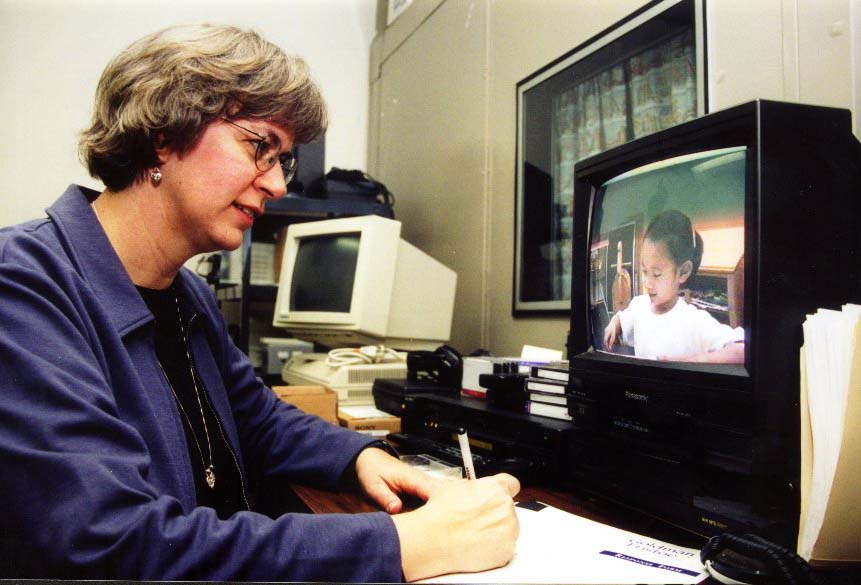
The most common assessment for phonology involves discriminating between two words that sound similar. In this assessment, the child is asked to listen to the teacher say pairs of words and decide if they are the same word repeated twice (which sometimes, they should be), or if they are different words. When pairs of different words are presented, they should only differ by one phoneme (and they should be similar phonemes, such as /sh/ and /s/ or /d/ and /g/). Also, when pairs of different words are presented, the location of the difference within the words should be varied (Sometimes the difference should be at the beginning, as in RHYME-LIME sometimes in the middle, as in MUD-MADE and sometimes at the end of the word, as in RIP-RIB). Also, attention should be paid to both vowels and consonants.
In a phonology test, the pairs of words do not have to be real words the child is familiar with. If a teacher wishes to make up a phonology test, she might find it easier to use made-up words. There is some merit to this approach because the child's attention is focused on the words themselves, and not on the meanings of the words.
Phonology is quite language specific, and children who speak languages other than English may be more "tuned" to the phonology of their native language. Similarly, teachers should be sensitive to the influence that dialect can play on a child's perceptions -- children who are raised immersed in one dialect of English may not be very sensitive to all of the distinct phonemes of other dialects of English.
from : www.sedl.org



1 comments:
I quite agree with you.My son usually say tine instead of fine. at first it was so funny,my hubby and I thought he was too small to pronounce it well,but he still say tine even now. Your post has given me an insight into dealing with this.
Thanks and stay blessed.
Post a Comment